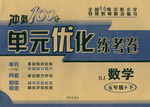题目内容
4.Alexander the Great spread the Greek culture from Europe to Africa and Asia,influencing(influence) the world for centuries to come.分析 亚历山大大帝把希腊文化由欧洲传播到非洲和亚洲,结果影响了世界随后的几个世纪.
解答 答案是influencing.本题考查非谓语动词做结果状语.根据句子结构判断,亚历山大大帝传播希腊文化的"结果"是影响了整个世界;非谓语动词中动词不定式和动词-ing形式都可以做结果状语,动词不定式表示"出乎预料的、令人沮丧的结果";动词-ing形式表示"自然而然的结果",句中显然是"自然而然的结果",答案是influencing.
点评 本题是要求用所给动词的适当形式填空,解题时首先考虑句中需要的是谓语动词还是非谓语动词;其次,如果是谓语动词关注时态、语态和数的变化;如果是非谓语动词要联系非谓语的基本用法判断非谓语的形式.

练习册系列答案
 冲刺100分单元优化练考卷系列答案
冲刺100分单元优化练考卷系列答案
相关题目